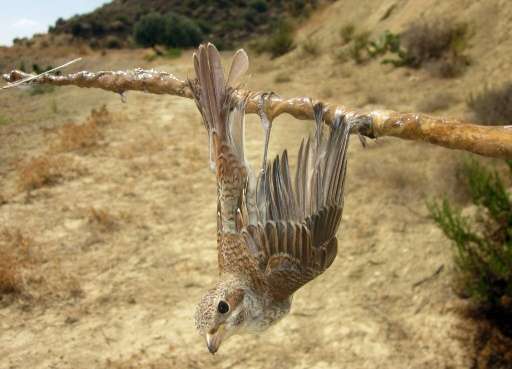Cyprus poachers kill 2.3 million songbirds in 2016

Poachers in Cyprus killed an estimated 2.3 million birds in autumn 2016, including 800,000 on a British military base, conservation groups said Thursday.
Poaching is banned on the Mediterranean island but songbirds including robins and blackcaps are regularly trapped and served as an illegal delicacy called "ambelopoulia".
The birds, including several species that use Cyprus as a key stop-off point on their migration between Europe and Africa, are trapped with nets or glue-covered perches called limesticks.
BirdLife Cyprus and Britain's Royal Society for the Protection of Birds (RSPB) said poaching rates were around their highest ever, with criminal gangs earning millions from the activity.
Britain's Dhekelia military base was "the worst bird killing hotspot in the whole of Cyprus", the RSPB said.
The group's Jonathan Hall called on the UK government "to crack down on this activity and end the illegal killing of songbirds in Dhekelia".
Britain retained sovereignty over two military base areas when Cyprus won independence in 1960 and has a police force in Dhekelia that tackles poachers.
But the conservation groups said it was not doing enough, saying poachers were making "blatant and extensive use of electronic calling devices" on a firing range there.
They said the most effective weapon against poaching was the removal of non-native Acacia trees, planted by trappers to lure in the birds. But they said British authorities had largely abandoned efforts to remove the trees after protests from the illegal trapping community.
Britain's defence ministry said it was committed to tackling illegal bird trapping, with "a record number of arrests, equipment seizures, prosecutions and fines".
"For the second year running we have halted the rising trend in numbers of birds killed," a spokesperson said.
BirdLife Cyprus chief Martin Hellicar also urged the Cypriot government to take "serious action against restaurants illegally serving ambelopoulia".
© 2017 AFP




















